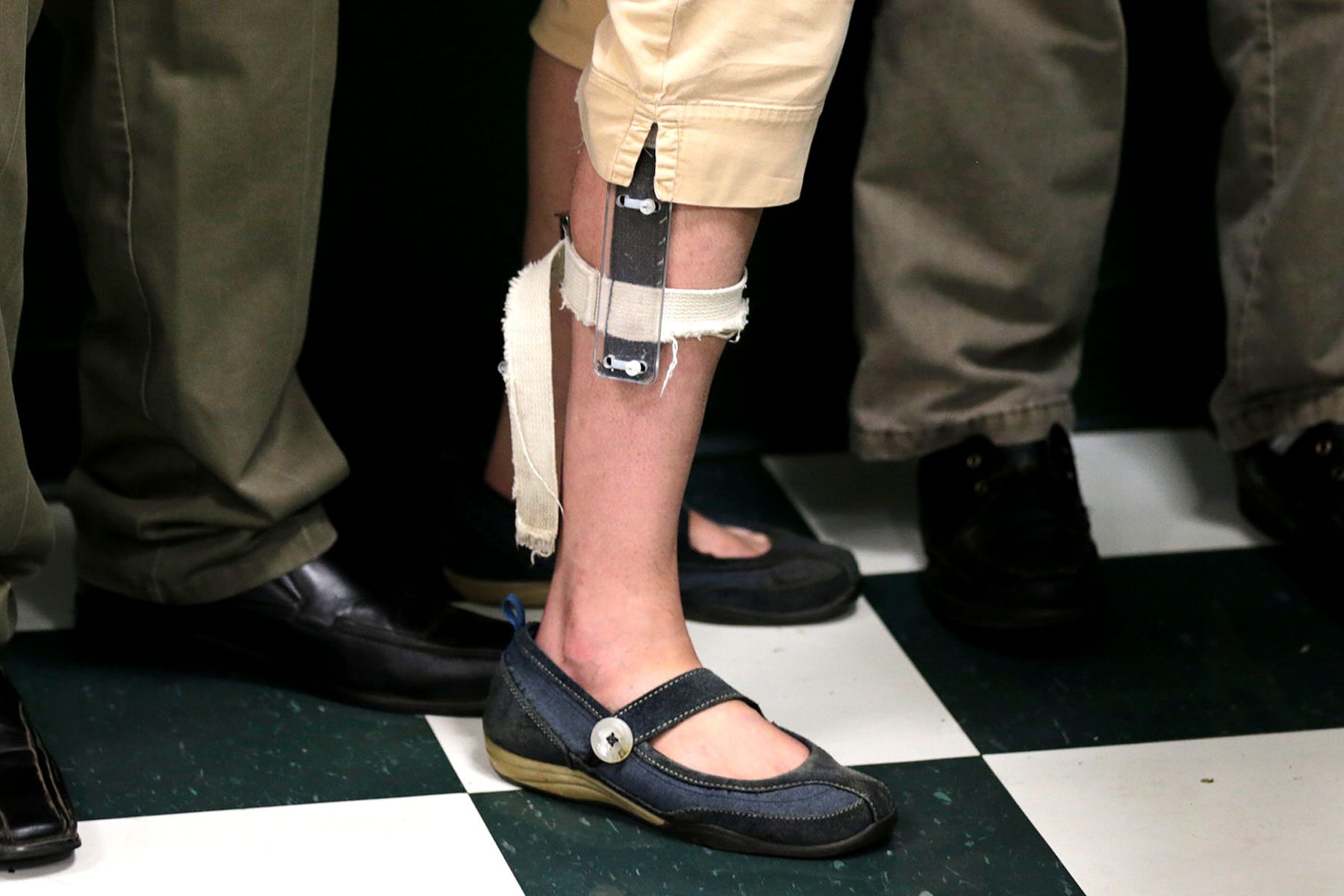Multiple senators are pushing for an end to the use of electric shock devices on people with disabilities, a tool that is now used by only one school in the United States.
At Judge Rotenberg Center in Canton, Massachusetts, some students at the school wear devices at all times, while staff members monitor them for infractions. Students who engage in undesirable behavior may receive a painful shock.
The school bills itself as a last resort for the most difficult and dangerous cases. Many of the students are autistic or have intellectual disabilities, but others are also admitted with psychiatric diagnoses such as bipolar disorder.
Legal battles over the use of these devices have been waged for decades. Historically, the devices have primarily been used on autistic students, but in recent years, use has expanded to people with other social and emotional disabilities.
It seemed in March 2020, though, that the fight over the use of shock devices might finally be over. The FDA banned them, saying in a news release that they caused “depression, anxiety, posttraumatic stress disorder, pain, burns, and tissue damage.”
But it was not. With the pandemic and ongoing court battles, nothing at the Judge Rotenberg Center changed. Furthermore, in July 2021, a federal appeals court overturned the decision, claiming the ban was not within the FDA’s authority. The use of punishing electric shock devices at the Judge Rotenberg Center has continued without pause.
In September, the FDA quietly filed an appeal. Now, Sen. Chris Murphy of Connecticut and a handful of other Democratic senators are publicly expressing their support. In a letter shared first with The 19th, Murphy praised the FDA and Department of Justice for choosing to file another appeal.
“We appreciate your defense of the rule [banning electric shock devices] and ask that you continue to prioritize the protection of people with disabilities by ending this dangerous practice,” he wrote. Six other senators have signed on, including Sens. Maggie Hassan and Bob Casey.
In an exclusive interview with The 19th, Murphy described the use of electric shocks as “something that belongs in the dustbin of history” and something that should not “be practiced in modern medicine.” He said he is considering legislation to address the issue.
“It may be we need to weigh in definitively and give the FDA the power to regulate [shock devices] or ban them outright,” Murphy said.
Some parents of students at the Judge Rotenberg Center believe that these electric shock devices are the only way to keep their children healthy and safe. They laud painful electric shocks as an alternative to excessive psychiatric medication.
The children do not necessarily agree. Jennifer Msumba, a former student, described the experience to CBS News as “like being underground in hell.” Given the choice between medication and electric shocks, Msumba said, “I’ve been one of those people that was all drugged up on so many medicines, and I would take that any day over being shocked, because I wasn’t afraid. I was tired, but I wasn’t afraid.”
In 2002, a student was put on a restraint board and shocked repeatedly for not removing a jacket when he was told to, according to NBC News; the facility says today that shocks are only used as a last resort for seriously harmful behaviors.
Advocates in the disability community are pleased to see support from Congress. The Autistic Self Advocacy Network is one of the advocacy groups leading the charge against the use of electric shocks on people with disabilities. “For the autistic community this isn’t just a legal dispute about the FDA’s authority,” Executive Director Julia Bascom told The 19th. “It’s a deeply personal argument about whether there is a right to torture some of the most vulnerable members of our community.”
Murphy said he doesn’t think of the electric shock devices as a disability issue, necessarily but as part of his work to ban and restrict the use of corporal punishment overall. “These [shock] devices are unique, but at their essence … [they’re] not dissimilar from other uses of corporal punishment,” he said. In June, Murphy reintroduced legislation that would bar teachers and other school staff from physically striking any student, for example. He also recently introduced legislation to divert federal funding away from maintaining school resource officers and toward in-school mental health services.
While the letter has no legal impact, Murphy and his fellow signees wanted to make clear to the courts that the Senate and others are paying attention. “The FDA isn’t a political body. It’s a scientific body. But they still pay attention to priorities from Congress… And it’s important to many of us that we do our part to end these draconian practices,” he said.
Disability advocates like Bascom are glad for the letter, despite its lack of teeth. “We’re glad to see that there continues to be strong support for ending the torture of disabled people via electric shock,” she told The 19th “The disability community has been fighting to end this practice for decades, and we’re closer than ever.”
Correction: An earlier version of this article incorrectly stated that the majority of the people at the Judge Rotenberg Center were Black and Latino boys and men. They account for 33 percent of people. The article also stated that students could be put in “four-point” restraints or shocked for minor infractions; the facility says it does not use “four-point” restraints and that such shocks are currently used only as a last resort.





